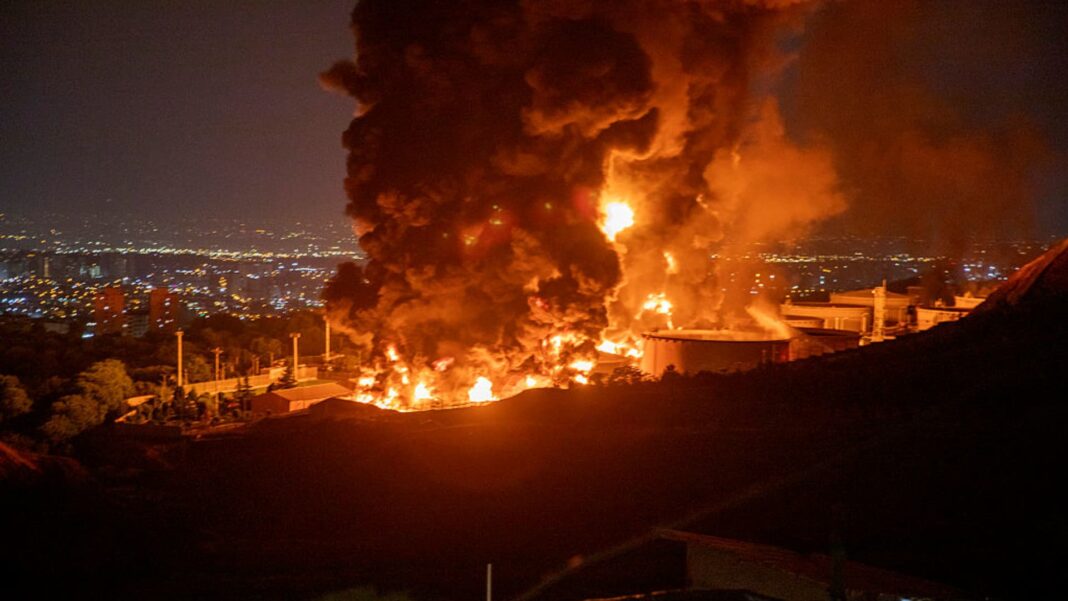The run-up in crude futures paused on Monday, with prices falling more than 4% on reports that Iran wants to end hostilities with Israel and resume nuclear talks.
U.S. crude oil was down $1.93, or 2.64%, to $71.05 per barrel by 11:51 a.m. E T., while global benchmark Brent fell $1.99, or 2.68%, to $72.24. One barrel contains 42 gallons.
Tehran has told Arab officials that it is open to returning to the negotiating table so long as the U.S. doesn’t join Israel’s air campaign, European and Middle Eastern officials told The Wall Street Journal.
Iran wants Saudi Arabia and other Arab nations to message Trump about pressuring Israel for a ceasefire and is offering to restart nuclear deal negotiations, Reuters also reported.
President Donald Trump said Monday that Iran would “like to talk but they should have done that before.”
“They should talk and they should talk immediately before it’s too late,” Trump told reporters during the G7 summit in Canada.
U.S. crude oil prices touched an overnight high of $77.49 per barrel after Israel targeted two natural gas facilities in Iran. But prices later pulled back on optimism that the conflict hadn’t yet had a material impact on global energy markets and the Persian Gulf and Strait of Hormuz remained open to shipping.
Despite the conflict, oil prices are unlikely to break above $80 per barrel, according to consulting firm Rystad Energy. The Trump administration wants oil prices closer to $50 per barrel and has an interest in containing the conflict to prevent energy prices from skyrocketing, Rystad said.
“We maintain our view that this is likely to remain a short-lived conflict, as further escalation risks spiraling beyond the control of key stakeholders,” said Janiv Shah, vice president of commodities markets at Rystad.
Israel hits energy facilities
Israeli drones struck the South Pars gas field in southern Iran on Saturday, according to Iranian state media reports. The strikes hit two natural gas processing facilities, state media said.
The extent of the damage to the facilities, one of the largest natural gas fields in the world, wasn’t disclosed. Israel also hit a major oil depot near Tehran, sources told The Jerusalem Post.
Iranian missiles, meanwhile, damaged an oil refinery in Haifa, according to The Times of Israel.
The attacks continued for a fourth day Monday, with Israel claiming to have achieved “aerial superiority” over Iran, according to a military spokesperson.
Oil prices rallied more than 7% on Friday after Israel launched a wave of airstrikes against Iran’s nuclear and ballistic missile programs as well as its senior military leadership. U.S. crude oil prices jumped 13% in total last week.
Strait of Hormuz open
Friday’s move was the largest since March 2022, after Russia launched its full-scale invasion of Ukraine.
Iran is considering shutting down the Strait of Hormuz, a senior commander said on Saturday. About one-fifth of the world’s oil is transported through the strait on its way to global markets, according to Goldman Sachs. A closure of the strait could push oil prices above $100 per barrel, according to Goldman.
Other analysts, however, are skeptical that Iran has the capacity to close the strait.
“I’ve heard assessments that it would be very difficult for the Iranians to close the Strait of Hormuz, given the presence of the U.S Fifth Fleet in Bahrain,” Helima Croft, global head of commodity strategy at RBC Capital Markets, told CNBC’s “Squawk Box” on Friday.
“But they could target tankers there, they could mine the straits,” Croft said.

